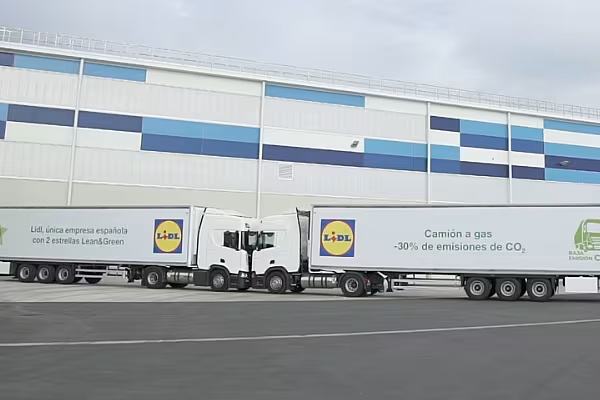German discount supermarket chain Lidl has chosen the city of Zaragoza, in north-eastern Spain, to build its new logistics hub for south-western Europe.
The company acquired a 200,000-square-metre plot in the Zaragoza Logistics Platform, PlaZa, on which a warehouse of up to 100,000 square metres will be built, according to Spanish daily El Economista.
The hub will be used to supply Lidl stores in Spain, Portugal, France and Italy with non-food products, such as textiles, DIY equipment, and toys.
The hub, which is expected to be operational within four years and create hundreds of jobs, will be the company’s largest in southern Europe.
Lidl currently has a 150,000-square-metre logistics centre near Barcelona, from where it manages the merchandise that arrives at the Port of Barcelona from Asia and is destined for final customers in south-western Europe.
Logistics Hub
The discounter has not released details of the investment on the project, but industry sources estimate it to be at least €100 million.
The choice of Zaragoza for the new hub was made by Lidl’s international HQ, which sees the Spanish city as a strategically important location for its southern European operations.
With the construction of the new logistics hub in Zaragoza, Lidl will expand its logistics capacity and create a Barcelona-Zaragoza logistics hub.
Tailwind Shipping Lines
The move is part of Lidl’s efforts to strengthen its supply chain between Asia and Europe, which began last year with the creation of the Tailwind Shipping Lines company, in response to global supply chain disruptions.
Tailwind is now expanding its service offerings to third parties. It has increased the frequency of its Tiger Express Service from Bangladesh, to transport more textile products, and added a new stopover in Colombo, Sri Lanka, to its China-Europe service.
These changes will allow Tailwind to increase cargo volumes, attract new customers and reduce unit costs, which should benefit Lidl consumers.
Currently, Tailwind has eight cargo ships that operate two services: China-Europe and Bangladesh-Europe. The ships are relatively small and make few stops, which allows them to call at less-congested and cheaper ports. This helps to reduce delays and improve response times.














